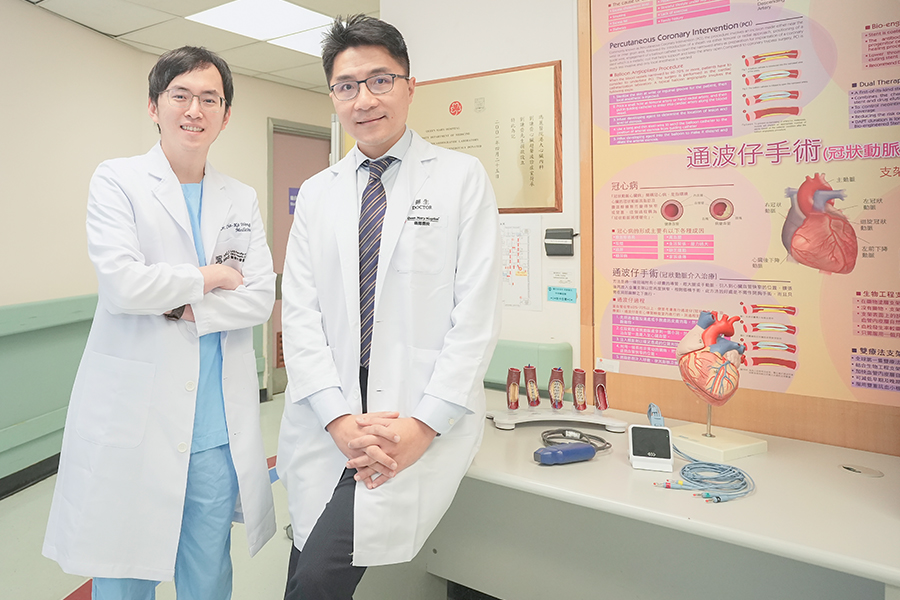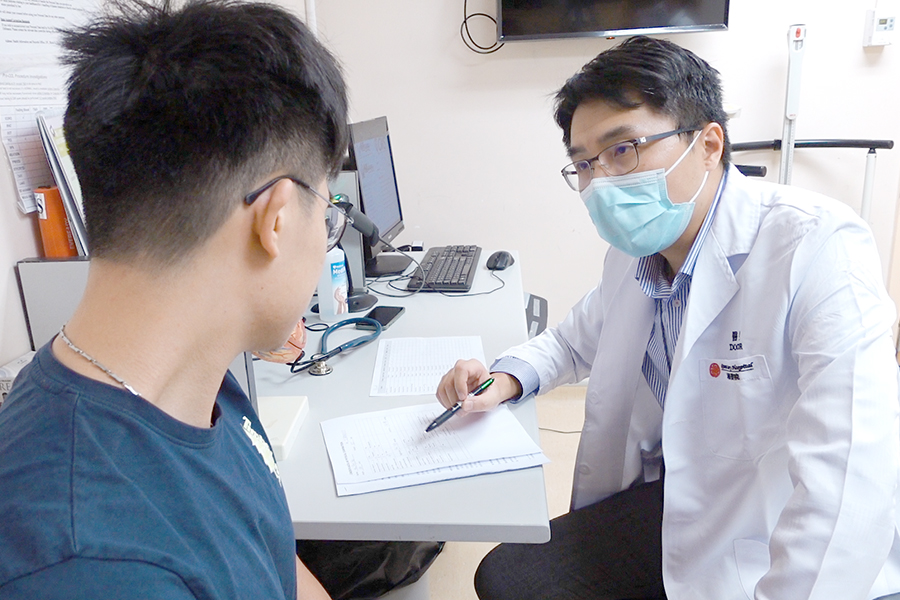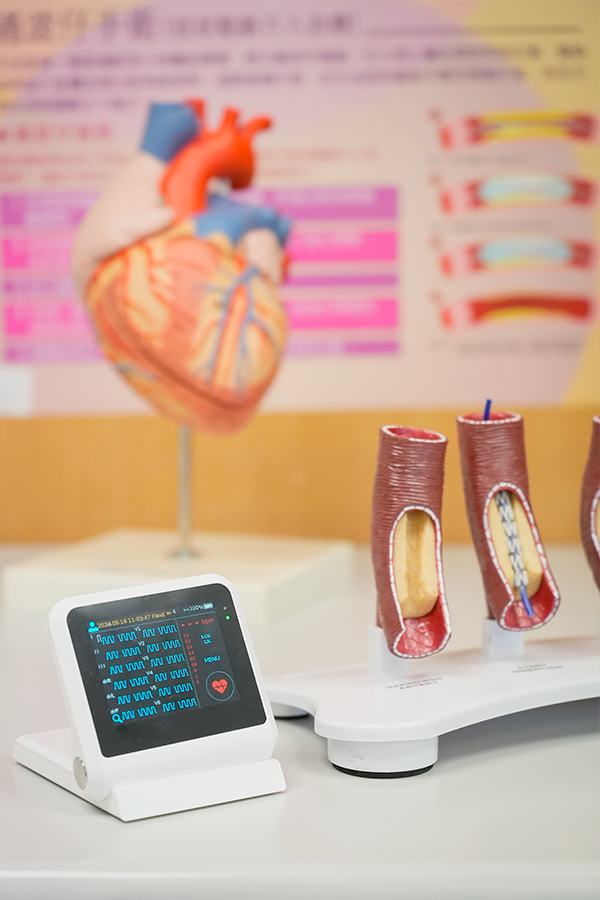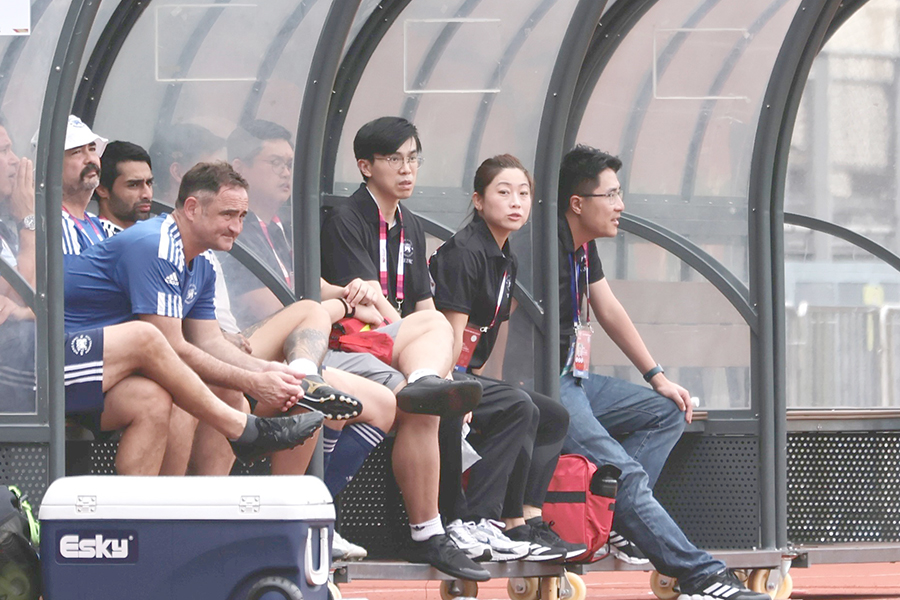Keeping promising young athletes in good heart
 “We have come across cases where players suffered cardiac arrests while doing sports and were rushed to the hospital for resuscitation with an extracorporeal membrane oxygenation device, but not many cases of this kind are successful,” Queen Mary Hospital Department of Medicine Consultant Dr Frankie Tam explains. “We have also seen an athlete collapsed in the middle of a match and the whole corridor of the hospital was filled with crying teammates. These incidents show that the heart health of athletes should not be neglected.”
“We have come across cases where players suffered cardiac arrests while doing sports and were rushed to the hospital for resuscitation with an extracorporeal membrane oxygenation device, but not many cases of this kind are successful,” Queen Mary Hospital Department of Medicine Consultant Dr Frankie Tam explains. “We have also seen an athlete collapsed in the middle of a match and the whole corridor of the hospital was filled with crying teammates. These incidents show that the heart health of athletes should not be neglected.”
Dr Tam started volunteering to screen the hearts of Hong Kong Premier League football players two years ago. A year later, he and his cardiology colleagues formed a volunteer team and set up a research programme in partnership with the University of Hong Kong (HKU) to provide screening to student athletes, including track and field athletes, rowers, dragon boat racers, fencers, swimmers and ball game players, etc. Around 150 sportspersons have so far been screened and nearly 10% required further assessment such as ultrasounds, exercise electrocardiograms (ECGs), and magnetic resonance imaging, etc. Most have been able to continue to do high-intensity exercise after treatment. “Some athletes who were in good shape were surprised to find they had potential heart problems after the tests,” says Dr Tam. “If one can screen them and follow up on the results before competitions, tragedies could be prevented.”
 The volunteer team has also been able to help some athletes pursue their dreams. Dr Tam recalls how one student athlete was noted to have an abnormal ECG shortly before joining the Hong Kong team, meaning she would be excluded from the team unless she could provide medical evidence showing she was capable of intensive training. “After further investigations, cardiologists were able to confirm that the ECG abnormality was not a major problem, and she was able to join the Hong Kong team to fulfil her dream. We were very happy.” Dr Tam says.
The volunteer team has also been able to help some athletes pursue their dreams. Dr Tam recalls how one student athlete was noted to have an abnormal ECG shortly before joining the Hong Kong team, meaning she would be excluded from the team unless she could provide medical evidence showing she was capable of intensive training. “After further investigations, cardiologists were able to confirm that the ECG abnormality was not a major problem, and she was able to join the Hong Kong team to fulfil her dream. We were very happy.” Dr Tam says.

Screening and education cut risk for sporting youngsters
Another key member of the volunteer team, HKU Department of Medicine Clinical Assistant and Cardiologist Professor Dr Emmanuel Wong, says the team also collects valuable data for heart health research while conducting screening. This includes the percentage of athletes suffering from different heart diseases, the optimal protocols for cardiac screening, and the effectiveness of different screening methods, which helps the team arrange the best screening for athletes. Dr Wong mentions that screening and education are the key to reducing the risk of sudden death in athletes. “Through the programme, we hope to educate athletes on the importance of regular heart check-ups, as well as educate different sectors of the community on the basics of first aid procedures, and to install first aid equipment, such as automated external defibrillators at various locations in case of emergency.”Hong Kong athletes have been increasingly successful in international competitions in recent years and Dr Tam believes protecting them is essential for the further development of sport in the territory. “It is hoped that the government and the sports sector will attach importance to heart screening for athletes and put in more resources. We will continue to enable more athletes to enjoy professional screening and counselling services through volunteer work, and we are happy to welcome student athletes from all universities,” he says.
